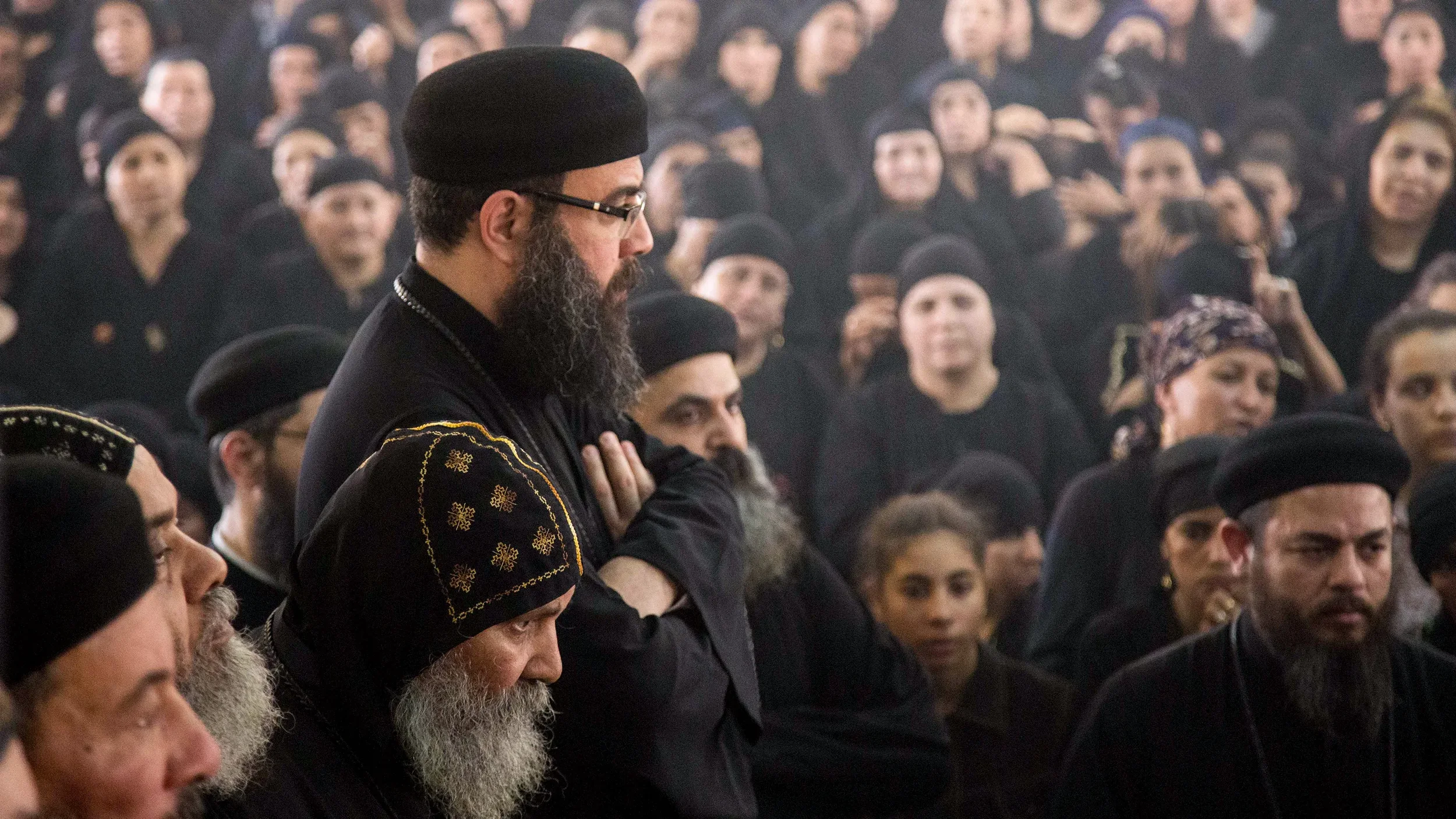How Coptic Martyrs—and Migrants—Inform Our Christian Faith (Interview by Jayson Casper)
While beheadings grab headlines, poverty and cultural friction push emigration to the West—where the welcome is not always what Copts expect. The story is far more nuanced than the flight from religious intolerance, says anthropologist Candace Lukasik, drawing from her recent book, Martyrs and Migrants, for this interview with Christianity Today.
The American Politics of Coptic Martyrdom
Despite racial difference from white America, American Copts also overwhelmingly see their ties to the Christian Right in terms of kinship and blood rather than racial difference. Copts are a racial minority in the United States, but they are also part of the Christian majority. As a Middle Eastern Christian immigrant community, American Copts have contended with their lack of power in numbers and have sought allies among conservative forces on the Right.
Human Rights and Persecution Economies
If the Copts in Egypt are the subjects of human rights (those injured by Muslims, their claims in need of redress), what then of Copts in America? Where American Muslims have been racialized and securitized under the War on Terror—and Copts racialized alongside them? How are these social, political, and religious contexts (the Copts in Egypt, the Copts in America) even comparable? How can we start to take American Copts seriously as communities in their own right—with their connections to Egypt, but also centering the struggles they face here, as immigrants, as racialized communities, as working-class people?
Middle Eastern Christians and the US Immigration Debate
The Trump administration has focused policy on aiding persecuted Middle Eastern Christians, and the Copts have figured prominently in such initiatives. Although Copts stand as the exemplary Christian victims of Islamic terrorism within such circles, their struggles as people of color and migrants in the age of Donald Trump are not alleviated by their privileged status among Christian leaders and Western policymakers. Along with other communities of color, they face discrimination because of their racial difference from white America, and Copts encounter the same sort of targeted profiling and hate crimes as do their American Muslim counterparts, racialized and securitized after 9/11.
Debating Christmas Day: Copts, Calendars, and the Immigrants’ Church
Immigrant parishes in North America at one point in their early history routinely celebrated Christmas on December 25 to retain congregants and serve the needs of early Copts scattered across Central Canada and the North Eastern United States. At the heart of such debates, past and present, is the tremendous influence of Pope Shenouda and the many meanings of belonging to the Coptic Orthodox Church of Egypt. In order to chart this history and offer insights on its contemporary significance, we begin with the challenges faced by early Copts in North America and then outline the changing nature of Coptic diasporic communities as a consequence of rising immigration from Upper Egypt, following the 2011 revolution.
Land, Migration, and Memory in an Upper Egyptian Village
This seemingly ordinary village in the governorate of Qena tells a unique story of Coptic emigration over the past century. Its villas stand as a living testament to the Coptic land-owning families that once held considerable political and social power, prior to the 1952 revolution. Bahjura also tells of the current wave of Coptic emigration to the United States through the Diversity Visa (Green Card Lottery). Both distinctly classed perspectives on the changing climate in Egypt continue to live in Bahjura through folktales of a bygone era, the ever-present detailed wooden balconies of abandoned buildings, and the locked gates of the most elaborate villas, designed by French engineers.





